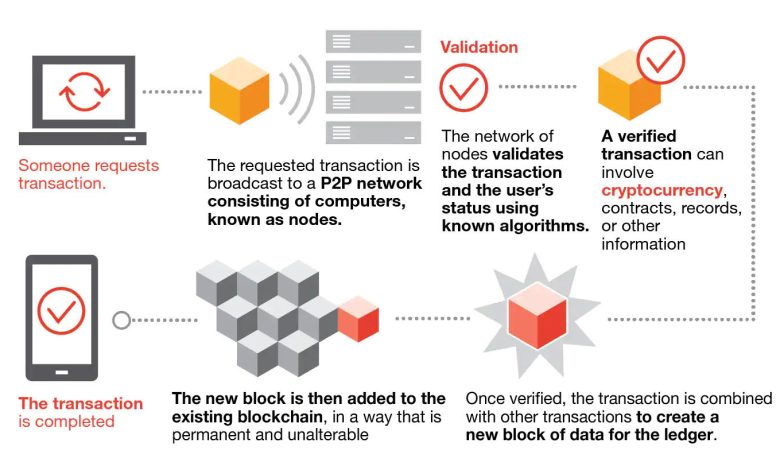Understanding Smart Contracts

- What are Smart Contracts?
- The Benefits of Using Smart Contracts
- How Smart Contracts Work
- Common Misconceptions about Smart Contracts
- The Future of Smart Contracts
- Implementing Smart Contracts in Various Industries
What are Smart Contracts?
Smart contracts are self-executing contracts with the terms of the agreement directly written into code. These contracts automatically enforce and facilitate the negotiation or performance of a contract, without the need for intermediaries. Smart contracts run on blockchain technology, which ensures security, transparency, and immutability.
One of the key features of smart contracts is their ability to eliminate the need for intermediaries, such as lawyers or brokers, which can reduce costs and streamline processes. Smart contracts can be used in various industries, including finance, real estate, supply chain management, and more.
When a smart contract is created, all parties involved agree to the terms and conditions encoded in the contract. Once these conditions are met, the contract is automatically executed. This automation reduces the risk of fraud, as the terms of the contract are transparent and cannot be altered.
Smart contracts are revolutionizing the way agreements are made and executed, offering a more efficient, secure, and cost-effective alternative to traditional contracts. As blockchain technology continues to evolve, smart contracts are expected to play an increasingly important role in various industries.
The Benefits of Using Smart Contracts
Smart contracts offer a wide range of benefits that make them an attractive option for various industries. One of the key advantages of using smart contracts is their ability to automate processes, reducing the need for manual intervention and streamlining operations. This automation can lead to increased efficiency and cost savings for businesses.
Another benefit of smart contracts is their transparency and security. Because smart contracts are stored on a blockchain, they are immutable and tamper-proof, reducing the risk of fraud or manipulation. This level of security can provide peace of mind to parties involved in a contract, knowing that the terms will be executed as agreed upon.
Smart contracts also offer increased speed in executing transactions. Traditional contracts often require intermediaries to verify and enforce agreements, which can lead to delays. With smart contracts, transactions can be executed automatically once the conditions are met, reducing the time it takes to complete a deal.
Furthermore, smart contracts can help to reduce the risk of errors or misunderstandings that can occur with traditional contracts. By codifying the terms of an agreement into a smart contract, parties can ensure that the contract will be executed exactly as intended, without the possibility of misinterpretation.
In conclusion, the benefits of using smart contracts are numerous, including automation, transparency, security, speed, and accuracy. These advantages make smart contracts a valuable tool for businesses looking to streamline their operations and improve the efficiency of their transactions.
How Smart Contracts Work
Smart contracts are self-executing contracts with the terms of the agreement between buyer and seller being directly written into lines of code. These contracts run on the blockchain, ensuring that they are secure, transparent, and tamper-proof. When certain conditions are met, the smart contract automatically executes the terms of the agreement without the need for intermediaries.
Smart contracts work by utilizing blockchain technology to verify, facilitate, or enforce the negotiation or performance of a contract. They are designed to be immutable, meaning that once deployed, the code cannot be altered. This ensures that all parties involved can trust that the contract will be executed as intended.
One of the key features of smart contracts is their ability to eliminate the need for intermediaries, such as lawyers or brokers, which can help reduce costs and streamline processes. By cutting out the middleman, smart contracts can also help reduce the risk of fraud or manipulation.
Overall, smart contracts offer a more efficient and secure way to conduct transactions and agreements. By leveraging blockchain technology, these contracts provide a level of trust and transparency that traditional contracts cannot match. As the use of blockchain technology continues to grow, smart contracts are poised to revolutionize the way we do business.
Common Misconceptions about Smart Contracts
There are several common misconceptions about smart contracts that can lead to confusion among individuals who are new to the concept. It is important to address these misconceptions in order to have a clear understanding of how smart contracts work and their potential benefits.
- One common misconception is that smart contracts are the same as traditional legal contracts. While both serve the purpose of facilitating agreements between parties, smart contracts are self-executing and automated based on predefined conditions.
- Another misconception is that smart contracts are only applicable to financial transactions. In reality, smart contracts can be used in a wide range of industries and applications, including supply chain management, real estate, and healthcare.
- Some people believe that smart contracts are immutable and cannot be changed once deployed. While smart contracts are designed to be secure and tamper-proof, there are mechanisms in place to update or modify them if necessary.
- There is also a misconception that smart contracts are completely trustless. While smart contracts can help establish trust between parties by eliminating intermediaries, there is still a level of trust required in the accuracy and security of the code.
- Finally, some people believe that smart contracts are perfect and flawless in their execution. However, like any other technology, smart contracts are subject to bugs and vulnerabilities that can be exploited if not properly addressed.
By understanding and addressing these common misconceptions, individuals can gain a clearer insight into the capabilities and limitations of smart contracts, allowing them to make informed decisions when utilizing this innovative technology.
The Future of Smart Contracts
As we look ahead to the future of smart contracts, it is clear that these digital agreements have the potential to revolutionize various industries. With the ability to automate and execute transactions without the need for intermediaries, smart contracts offer increased efficiency, transparency, and security.
One of the key developments in the future of smart contracts is the integration of blockchain technology. By leveraging blockchain, smart contracts can be securely stored and executed in a decentralized manner, further enhancing their reliability and trustworthiness.
Additionally, advancements in programming languages and platforms are making it easier for developers to create and deploy smart contracts. This increased accessibility will likely lead to a wider adoption of smart contracts across different sectors, from finance to supply chain management.
Moreover, as smart contracts continue to evolve, we can expect to see improvements in scalability and interoperability. This will enable smart contracts to handle a larger volume of transactions and interact seamlessly with other smart contracts and traditional legal agreements.
In conclusion, the future of smart contracts is bright, with endless possibilities for innovation and disruption. By staying informed and embracing these technological advancements, businesses and individuals can harness the power of smart contracts to streamline processes, reduce costs, and drive growth in the digital economy.
Implementing Smart Contracts in Various Industries
Smart contracts have the potential to revolutionize various industries by streamlining processes, reducing costs, and increasing transparency. Let’s explore how smart contracts can be implemented in different sectors:
- Real Estate: Smart contracts can automate property transactions, ensuring secure and efficient transfer of ownership.
- Supply Chain Management: Smart contracts can track goods at every stage of the supply chain, reducing fraud and improving accountability.
- Healthcare: Smart contracts can securely store patient records and automate insurance claims processing, enhancing data security and efficiency.
- Legal: Smart contracts can automate contract execution, reducing the need for intermediaries and minimizing the risk of disputes.
- Finance: Smart contracts can facilitate peer-to-peer lending, automate compliance processes, and enable instant settlement of financial transactions.
By leveraging smart contracts, industries can benefit from increased efficiency, reduced costs, and enhanced security. As the technology continues to evolve, we can expect to see even more innovative use cases across various sectors.



